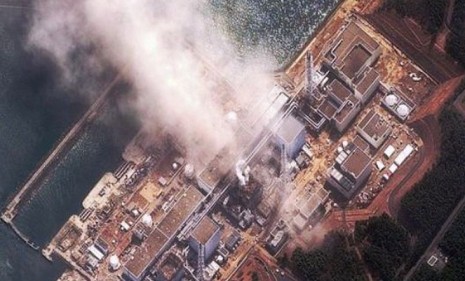The Fukushima 50: What's the prognosis for Japan's nuclear heroes?
Two emergency workers at Japan's battered nuclear plant have suffered radiation burns. What else might happen to the crews fighting to prevent a post-tsunami meltdown?

A free daily email with the biggest news stories of the day – and the best features from TheWeek.com
You are now subscribed
Your newsletter sign-up was successful
Two workers at Japan's Fukushima nuclear power plant were taken to the hospital this week after being exposed to high levels of radiation. Their injuries underscored the dangers facing the so-called Fukushima 50 — the crew that stayed behind to prevent a full-scale meltdown at the crippled plant after the March 11 earthquake and tsunami. The anonymous band of 50 low- and mid-level managers has now been reinforced with hundreds more plant workers and firefighters. Here, a brief guide to the emergency workers, and the uncertain future they face:
How were these two workers injured?
They stood for 40 to 50 minutes in radioactive, ankle-deep water in the basement of Fukushima's No. 3 reactor, trying to lay cables to help restore power to the reactor's cooling system. Their equipment registered radiation levels as high as 180 millisieverts, enough to cause radiation burns below their knees.
The Week
Escape your echo chamber. Get the facts behind the news, plus analysis from multiple perspectives.

Sign up for The Week's Free Newsletters
From our morning news briefing to a weekly Good News Newsletter, get the best of The Week delivered directly to your inbox.
From our morning news briefing to a weekly Good News Newsletter, get the best of The Week delivered directly to your inbox.
Just how much radiation is that?
A lot. Most people are exposed to just two millisieverts of radiation over the course of a whole year. The normal allowable exposure limit for nuclear workers in Japan is 50 millisieverts in a year (about seven times the dose from a chest CT scan), but in the aftermath of the earthquake, Japan raised the annual limit to 250 millisieverts. Anyone exposed to that much radiation stands a 1.25 percent greater chance of getting cancer than the average person. "If 250 mSv is spread over several days," says radiation biologist Eric Hall, as quoted by USA Today, "they're not going to be sick, but they will have a risk later."
Weren't they wearing protective gear?
Yes, they were covered with three layers of protective clothing, masks, helmets, and gloves. But the Tokyo Electric Power Co., which operates the plant, had not given them special boots, because there had been no deep puddles in the basement the previous day. The contaminated water seeped through their ordinary work shoes and their pants. A third worker who was wearing protective boots was unharmed.
A free daily email with the biggest news stories of the day – and the best features from TheWeek.com
Have other workers been hurt?
Yes. Britain's Daily Mail reports that five workers have been killed at the plant. USA Today, citing TEPCO, says two have gone missing and another 25 have been injured or exposed to high levels of radiation. Most of the injuries were caused by explosions. "I don't know any other way to say it," says Keiichi Nakagawa, associate professor in the Department of Radiology at the University of Tokyo Hospital, as quoted by USA Today, "but this is like suicide fighters in a war."
What is their long term prognosis?
It's too early to tell. The World Health Organization says cancer rates were roughly 4 percent higher than normal among people exposed to similar doses of radiation after the Chernobyl nuclear accident in 1986. Protective clothing can buffer workers from the extremely high exposure that would otherwise cause radiation sickness, which could kill them quickly. But "you are still breathing this into your lungs, and there is passive absorption in the skin, eyes, and mouth," says Lee Tin-lap, a toxicologist at a Hong Kong university, as quoted by Benzinga. "We really do not know what longterm impact that would have."
Sources: BBC News, Asahi Shimbun, USA Today, Daily Mail, Benzinga, WHO